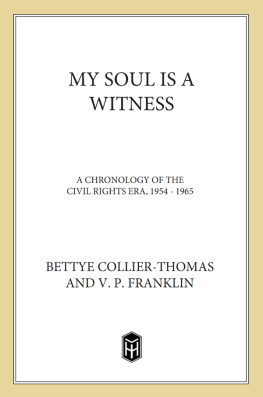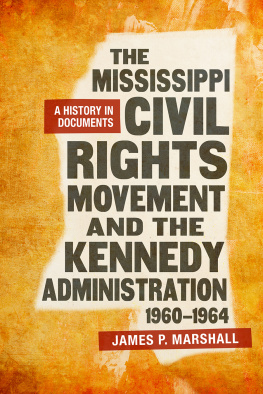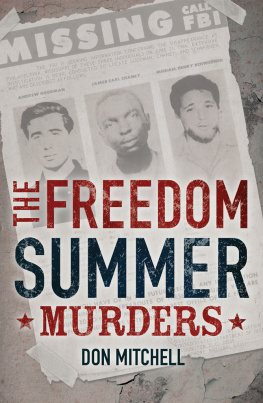
The author and publisher have provided this e-book to you for your personal use only. You may not make this e-book publicly available in any way. Copyright infringement is against the law. If you believe the copy of this e-book you are reading infringes on the authors copyright, please notify the publisher at: us.macmillanusa.com/piracy.
For Dee Dee, of course
Contents
Part One
Part Two
Part Three
Stronger than all the armies is an idea whose time has come.
S ENATOR E VERETT M C K INLEY D IRKSEN,
June 10, 1964
Prologue
F RIDAY, N OVEMBER 22, 1963
J UST AFTER 1:30 P.M., in the near-empty chamber of the United States Senate, a handsome, dark-haired freshman was taking his back-benchers turn at a thankless task: presiding over a desultory debate on the need for federal library services. Edward M. Kennedy, thirty-one years old, had been the junior senator from Massachusetts for barely a year and had yet to make a speech from the floor. Suddenly, Richard Riedel, a Senate press liaison who had first come to the Capitol a half century earlier as a nine-year-old page, came running onto the Senate floor, in a breach of all decorum. He rushed for the rostrum and told the presiding officer, The most horrible thing has happened! Its terrible, terrible!
Kennedy, who had been signing letters and autographing photographs, paused to ask, What is it?
Your brother, Riedel began, before remembering that the senator had two brothers. Your brother the president. Hes been shot. Riedel had seen the news on the Associated Press ticker in the Senators Lobby, the long corridor behind the chamber, and immediately began spreading the news. Kennedy leaped up and ran toward his own office, followed by David Schoumacher, a young CBS News reporter who had started work that very week. I dont know anything, Kennedy told him. I just heard.
A few blocks down Massachusetts Avenue, at the Chilean embassy, Senator Hubert H. Humphrey of Minnesota, who had lost the 1960 Democratic nomination to John F. Kennedy after hard-fought primaries in Wisconsin and West Virginia, was sitting down with his wife, Muriel, at a luncheon in honor of the ambassador of Australia. The other guests included Ralph Dungan, a special assistant to President Kennedy, and Edward P. Morgan, a veteran broadcast reporter working for ABC News. An urgent telephone call summoned Morgan away from the table with the same bulletin from Dallas. He returned and told Humphrey, and together they called Dungan into a space outside the dining room. After what seemed an interminable delay, Dungan confirmed the news with the Secret Service and left for the White House. Humphrey remained, heading to his car parked in front of the embassy to listen for updates on the radio.
Across the Potomac River in McLean, Virginia, Attorney General Robert F. Kennedy, who two days earlier had turned thirty-eight years old, was at home taking a break from a daylong conference on organized crime. He was having lunch with his friend Robert Morgenthau, the United States attorney in Manhattan, eating a tuna fish sandwich, when the telephone rang by his backyard pool. At the other end of the line was the formidable director of the Federal Bureau of Investigation, J. Edgar Hoover, already in his fortieth year as head of the nations most powerful law enforcement agency. His voice was cold, his manner curt. I have news for you, he said. The presidents been shot.
The attorney general struggled to understand. What? OhIis it serious? he stammered.
I think it is serious, Hoover replied. I am endeavoring to get details. Ill call you back when I find out more.
In Atlanta, Martin Luther King Jr., the thirty-four-year-old preacher who for nearly a decade had been leading his nonviolent campaign for civil rights in cities across the South, was under the weather and watching television at home in bed. He had special reason to be grateful to President Kennedy, whose intercession and dramatic phone call to his wife, Coretta, during the 1960 campaign had helped secure Kings release from jail after he was arrested at a lunch counter sit-in at an Atlanta department store and sentenced to hard labor. Now, King called out to his wife, who was on the phone downstairs, Corrie, I just heard that Kennedy has been shot, maybe killed. And then he told her, Oh, I hope that he will live, this is just terrible. I think that if he lives, if he pulls through this, it will help him to understand better what we go through.
* * *
A S THE MINUTES TICKED by toward 2:00 p.m. Washington time, and then 2:30, Ted Kennedy raced on foot through the streets of his Georgetown neighborhood with his aide Milt Gwirtzman, trying in vain to find a working phone. A mass of sudden midday calls to share the news from Texas had overwhelmed the Chesapeake & Potomac Telephone Companys entire system.
At 2:35, United Press International moved its definitive flash from Dallas: PRESIDENT KENNEDY DEAD. In McLean, Bob Kennedy heard the news in a phone call from Taz Shepard, the presidents naval aide, and then in another abrupt call from Director Hoover, who simply said, The presidents dead, and hung up. (Robert Kennedy would later say that Hoover had seemed not quite as excited as if he were reporting the fact that he had found a Communist on the faculty of Howard University.)
At the Chilean embassy, Hubert Humphrey received confirmation from Ralph Dungan at the White House and announced the news to the luncheon guests. Then he broke down in tears. Unsure of what else to do, he headed to the Northwest Gate of the White House and into Dungans office in the West Wing, where a group including a young assistant secretary of labor named Daniel Patrick Moynihan had gathered. What have they done to us? Humphrey cried out. Later he would recall, For most of us who gathered there, there was nothing, really, to do. The fact of his death was so overwhelming; yet in this house where he worked, ate, slept, played with his kids, it was impossible to think of him in the past tense. The reality was so horrendous that the whole atmosphere, paradoxically, took on an unreal quality.
In the Senate, it was the Republican minority leader, Everett McKinley Dirksen, a sixty-seven-year-old small-town boy from Pekin, Illinois, who had to make a motion for adjournment because the Democratic majority leader, Mike Mansfield of Montana, was too overcome. The scene was so chaotic that the journal of official proceedings does not even mention the reason for the break. Dirksen, who had once practiced before his familys cows the florid oratory that would make him known as the Wizard of Ooze, had engaged President Kennedy, his former Senate colleague, with affectionate badinage, and just that fall he had helped the president gain the Senates assent to the Nuclear Test Ban Treaty. Now he was a visage of melancholy, his jowly face contorted and gray with grief. He told reporters, Only someone suffering from aberrations of personality and motivated by insane passion would be guilty of the assassination of the great leader of the greatest country on earth.
In the Senators Lobby, with its big leather chairs and racks of out-of-town newspapers, a knot of members clustered around the Associated Press wire ticker. In the center was sixty-six-year-old Richard Brevard Russell Jr. of Georgia, a stern bachelor who was the master of the chambers rules, the mentor to younger Democrats, the leader of the conservative southern caucusand no great booster of John Fitzgerald Kennedy. As the bulletins came in from Dallas, Russell read them aloud, and his voice began to waver with each new bit of bad news, until finally the tears ran down his face.
Next page








